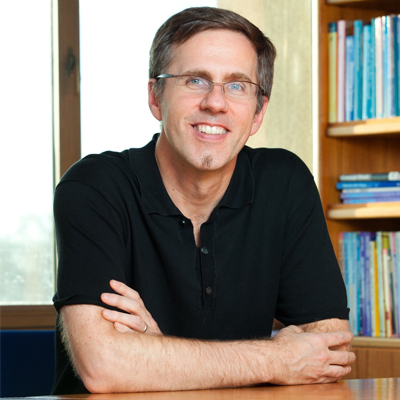Removing barriers for students and replacing them with a passion for continued learning
At sixteen, when asked what your favorite part of school was, odds are physics, calculus, or AP biology didn’t surpass lunch or P.E. Often, navigating the complexity of challenging classes prevents students from pursuing them after high school. Dr. Chris Schunn, of the University of Pittsburgh, is looking at the ways that science, engineering, technology, and mathematics can be brought together in classroom tasks that can be implemented in most classrooms by typical teachers and lead to improvements in learning and attitude outcomes. Through the development of curriculum, teacher trainings, and basic research, Dr. Schunn and his team are bringing the excitement of STEM learning back to the classroom to transform the slow decline in student interest. Not only is his research leading to a two-fold increase in student learning and incredible opportunities for teacher trainings, he’s also finding that students are more engaged than ever before in classroom learning! Such an impact is likely to have long lasting effects on students as STEM has become an important part of the workplace where science, technology, engineering, and mathematics are interwoven and dependent upon one another.
Dr. Schunn’s research is making large strides each year. In fact, he expects to produce a radically transformed high school biology course within the next three years and, with additional funding, will continue to make similar progress in chemistry as well. His unique background as a researcher who studied how scientists and engineers think has largely impacted his ability to create content for students that has real-world ramifications beyond the walls of their high schools. Thus, he and his team are able to implement true translational research that begins in a laboratory where basic research evolves into content that changes the lives of children across the nation. In addition, not only have the outcomes been supported by student success but also, Dr. Schunn is touching upon a diverse sample of students including children that will become the first generation from their families to attend college.
Current projects include:
-
Curriculum: Curriculum is aimed at introducing complex STEM disciplines to students in new and engaging ways. As students build upon new material, they are presented with hands-on learning opportunities with windows into true applications for future careers in science, technology, engineering, and more.
-
Design Challenge: Dr. Schunn’s curriculum leads up to a virtual design challenge where students are able to compete against other students where they can learn through competition and teamwork. For instance, students learn chemistry and engineering by designing and testing prototypes of chemical-based heating and cooling systems. Another design challenge involves a 3-way combination of science, engineering and math where students develop a breeding plan for zoos to produce rare geckos; there they learn statistics, inheritance mechanisms, and engineering design all at the same time.
-
Teacher Trainings: To implement effective curriculum for diverse classrooms, Dr. Schunn has recognized the need for improved teacher trainings in which research guides new web-based tools for helping educators as they teach. Such trainings work towards approaches that lead to improved learning and student attitudes.
-
Basic Research: Dr. Schunn’s applied work within classrooms is fundamentally grounded in basic research. His work is able to bring the complex and abstract ideas of STEM to classrooms through rigorous science that gets at the root of how children learn.
Bio
Since early high school, Dr. Schunn was fascinated by how students around him reasoned about and learned in the diverse classes they were taking. He loved chemistry, physics, and mathematics in their own rights but was fascinated by how people learned those topics even more. In college, he studied psychology where he found his way to communities of researchers who were working on learning. From his honors thesis as an undergraduate through his Ph.D. dissertation, Dr. Schunn studied psychology of science, looking in great depth at the nature of scientific thinking and often the big gaps between how scientists and science students think. After receiving his first faculty position, the task of teaching made science education especially interesting. Dr. Schunn got involved in several projects working with middle and high school students. Through such research, he firmly believes: with the right supports, even young children can be brilliant and most teachers at all levels think their students cannot do sophisticated tasks. The tension in education between what could be possible and what is most often done is what continues to drive him now.
Aside from research, in his free time, Dr. Schunn enjoys watching, playing, and coaching soccer. Not only does he appreciate that the sport connects people from diverse backgrounds but also he has learned a lot about how children learn as he cheers his teams along as a coach.
Website: http://www.lrdc.pitt.edu/schunn
Publications
Awards
Fellow, Association for Psychological Science, 2014
Fellow, American Association for the Advancement of Science, Section Q, 2011
Fellow, American Psychology Association, Division 3, 2009
Fellow, International Society for Design & Development in Education, 2006
Best paper award at the 24th International Conference on Design Theory and Methodology
with Fu, Chan, Cagan, Kotovsky, Wood
Best work at the ED-Media 2003 conference, Hawaii, 2003
with Kwangsu Cho


